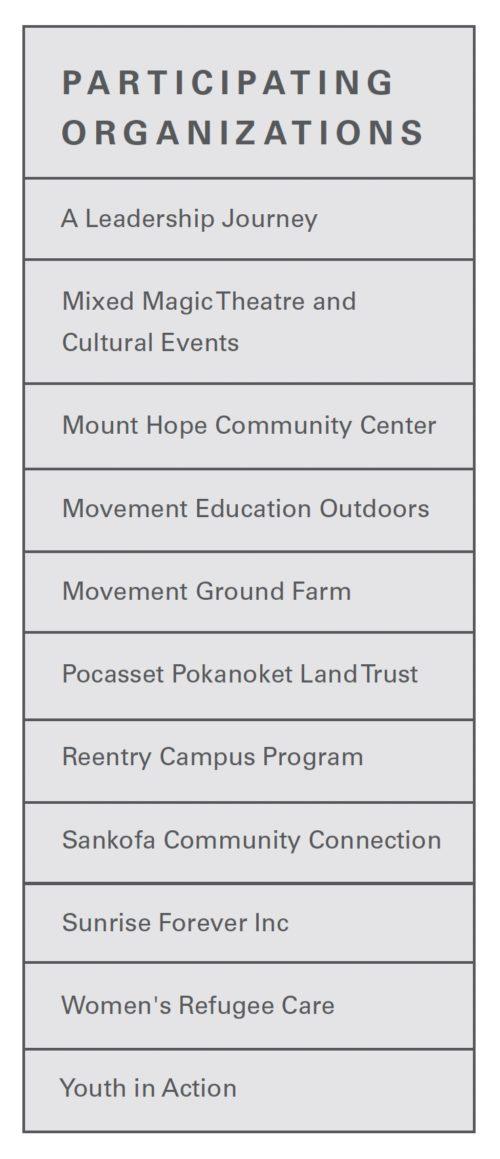The childhood memories of Providence-raised James Monteiro are inundated with Black-led organizations and leaders who looked like him. He grew up on Howell Street. From his backyard, James watched construction crews build the East Side/Mt. Hope YMCA. His street was just outside the Lippitt Hill neighborhood of predominantly Black homes and businesses that were destroyed in the 1960s via eminent domain.
The late Billy Taylor nurtured James and his friends’ passions by holding talent shows so they could flaunt their Michael Jackson “Beat It” moves and convincing the city to shut down a street so they could race the wooden go-karts they built. Later in his life, James saw Barry O’Connor Jr. running enrollment services at the Community College of Rhode Island. That was his “aha moment” to pursue his calling.
There was also the Opportunities Industrialization Center of Rhode Island (OIC) that the late Michael Van Leesten created and led, as well as the Urban League of Rhode Island and the John Hope Settlement House, among others, that were thriving then.
“Those organizations that everybody went to were Black led,” said Monteiro, now 53 years old, “and now, I don’t know what happened. If you look at the major organizations that serve our people now, for the most part, we don’t lead them anymore.”

Launched in October 2021, the Rhode Island Foundation’s capacity building for nonprofits of color program is helping 11 organizations led by Black, Hispanic or Latino, Indigenous, Asian, and multiracial people (also referred to as BIPOC) to strengthen and extend their reach. The three-year program is part of the Foundation’s $8.5 million investment—above and beyond the existing annual funding—to address racial equity, diversity, and inclusion.
Thirty organizations applied for the first cohort, and the selected represent a diverse group of organizations in different stages of their development. They include a Providence community center, a youth-centered travel program, women’s refugee care organization, and an Indigenous land trust.
The Reentry Campus Program (RCP), which James Monteiro is the founder and director of, was also chosen. The Providence-based nonprofit’s mission is to improve access to and completion of post-secondary education for individuals who are transitioning from the incarceration system back into their communities. In addition to creating degree pathway plans for this population, the RCP also has a mentorship program and provides critical wrap-around services, continuous support, and resources specific to their individual needs.
